-
Latest
23 October 2025
AnnouncementPayment of Base Fee and Variable Fee to Henderson Sunlight...
Relevant
8 October 2025
InvestmentsFull investment portfolio of Relevant Investments at 30...
Movement in Units
23 October 2025Next Day Disclosure Return -
Portfolio
LEARN MORE -
Leasing Enquiries
LEARN MORE
Climate Change
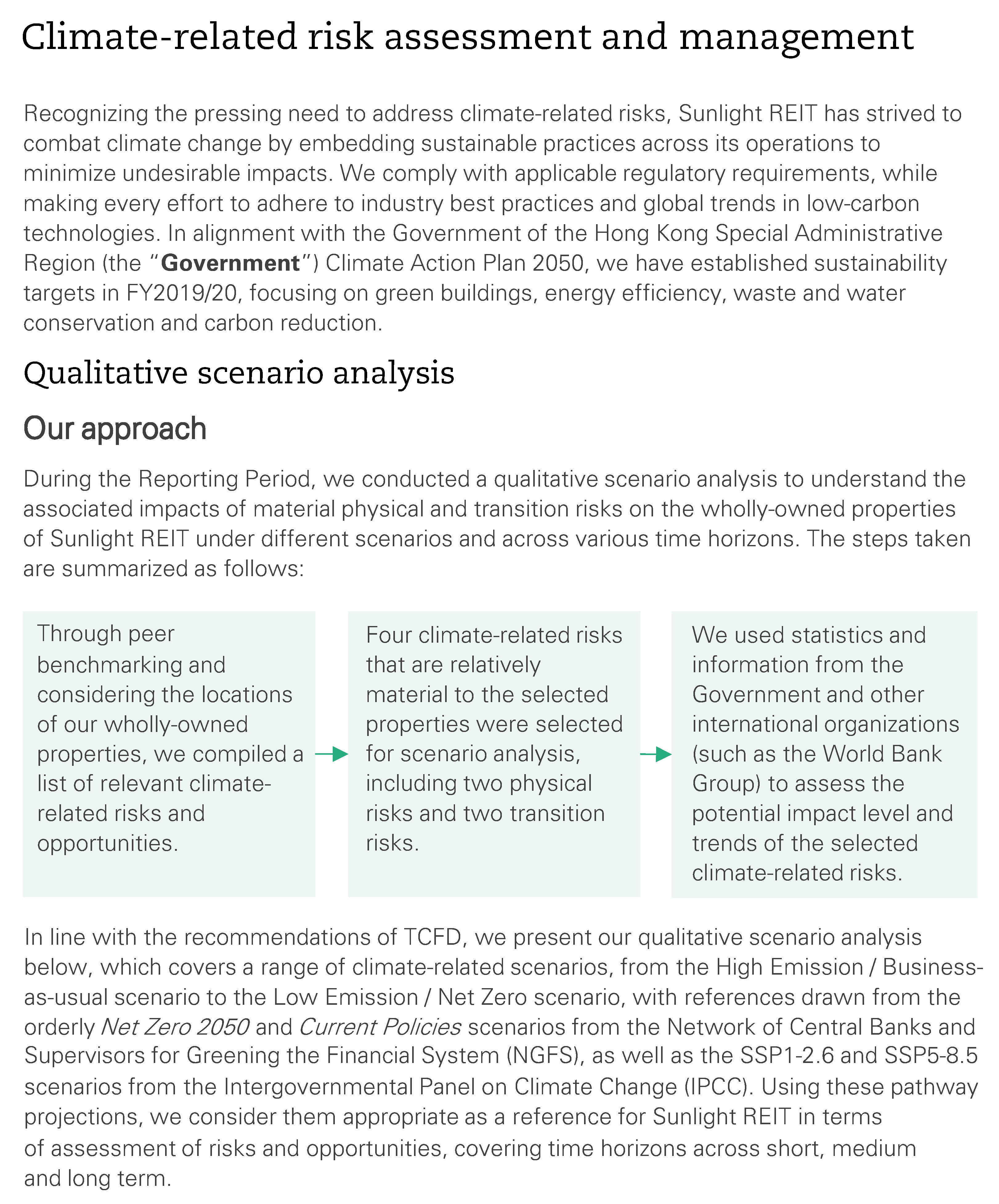
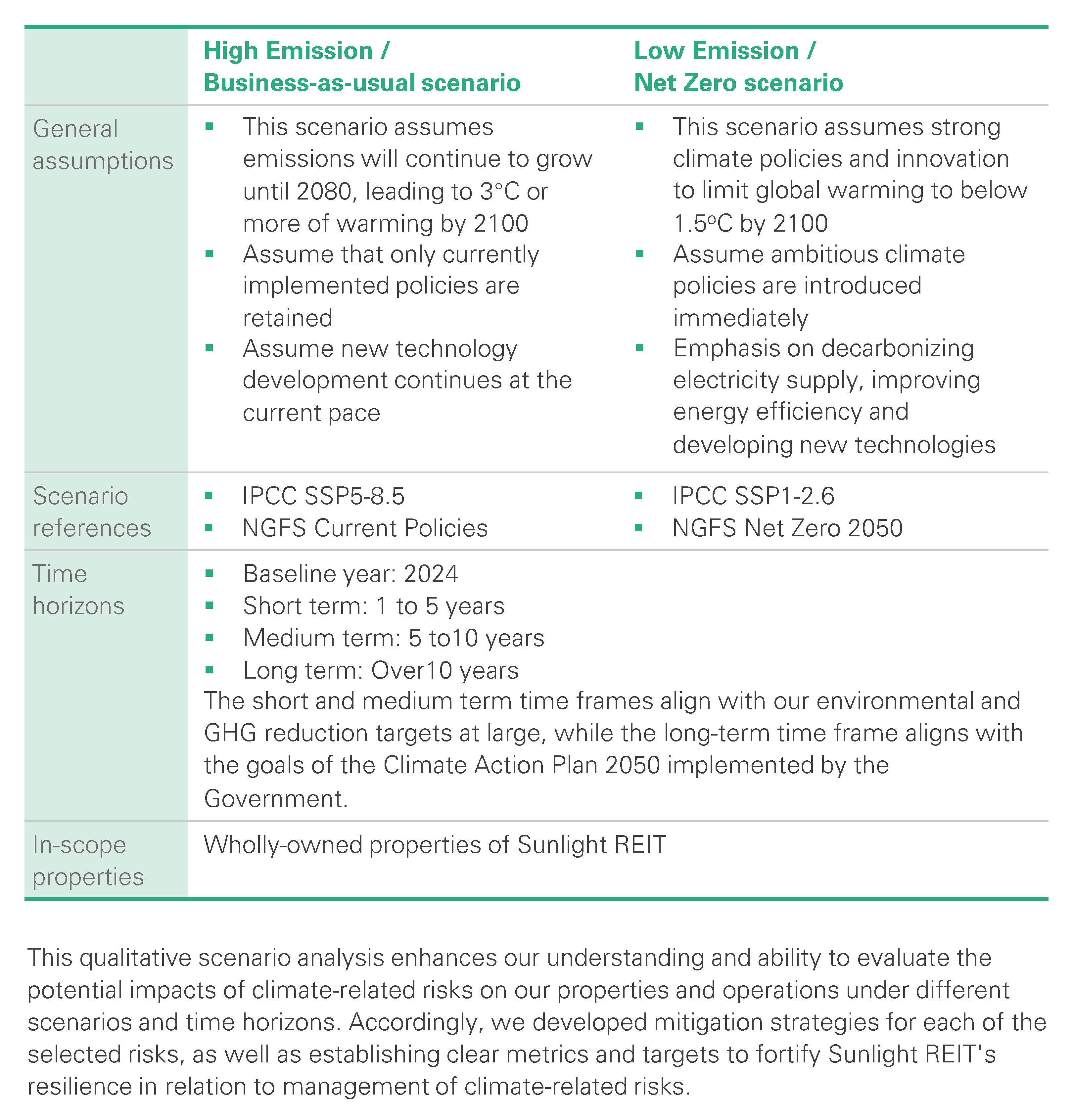
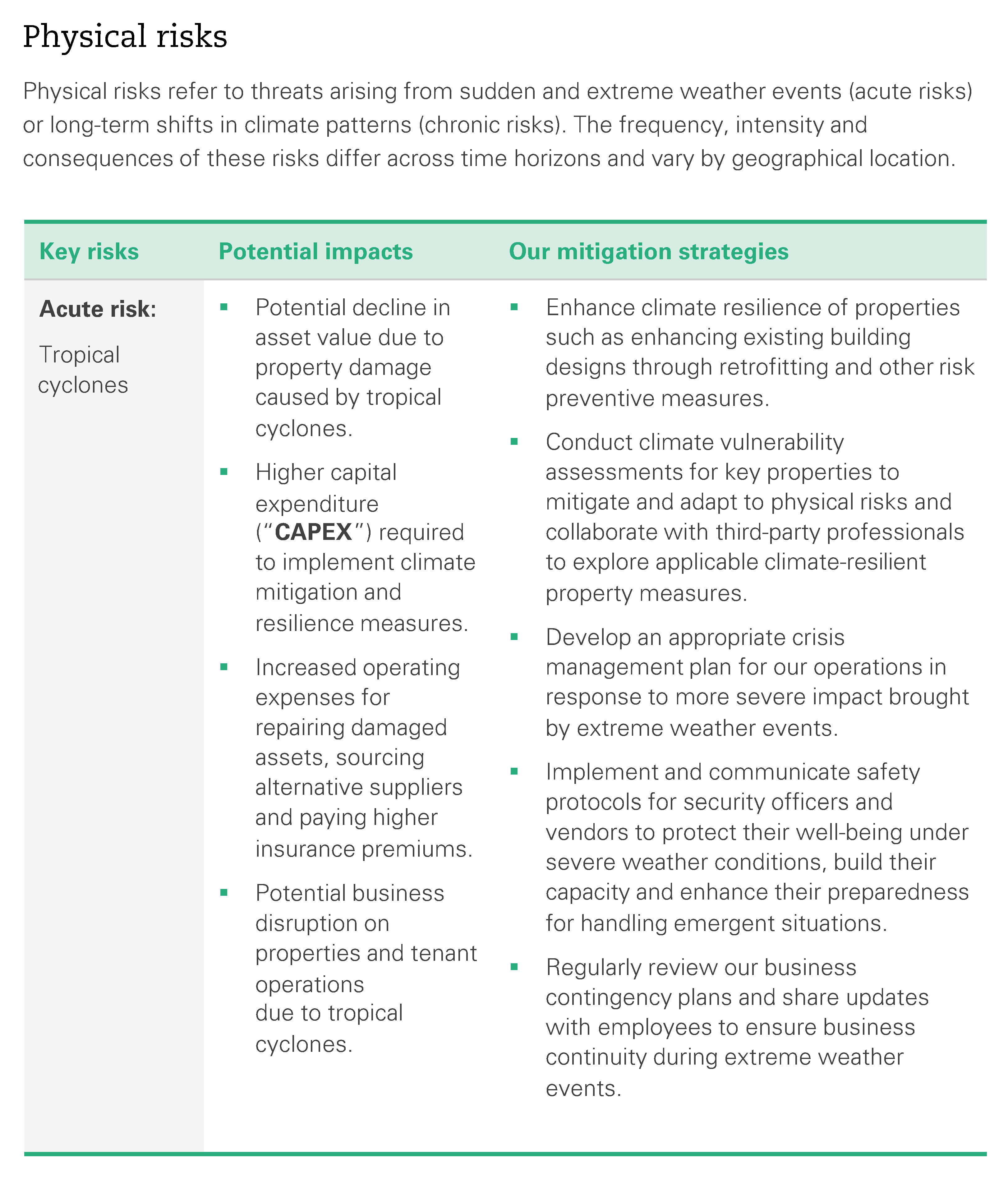
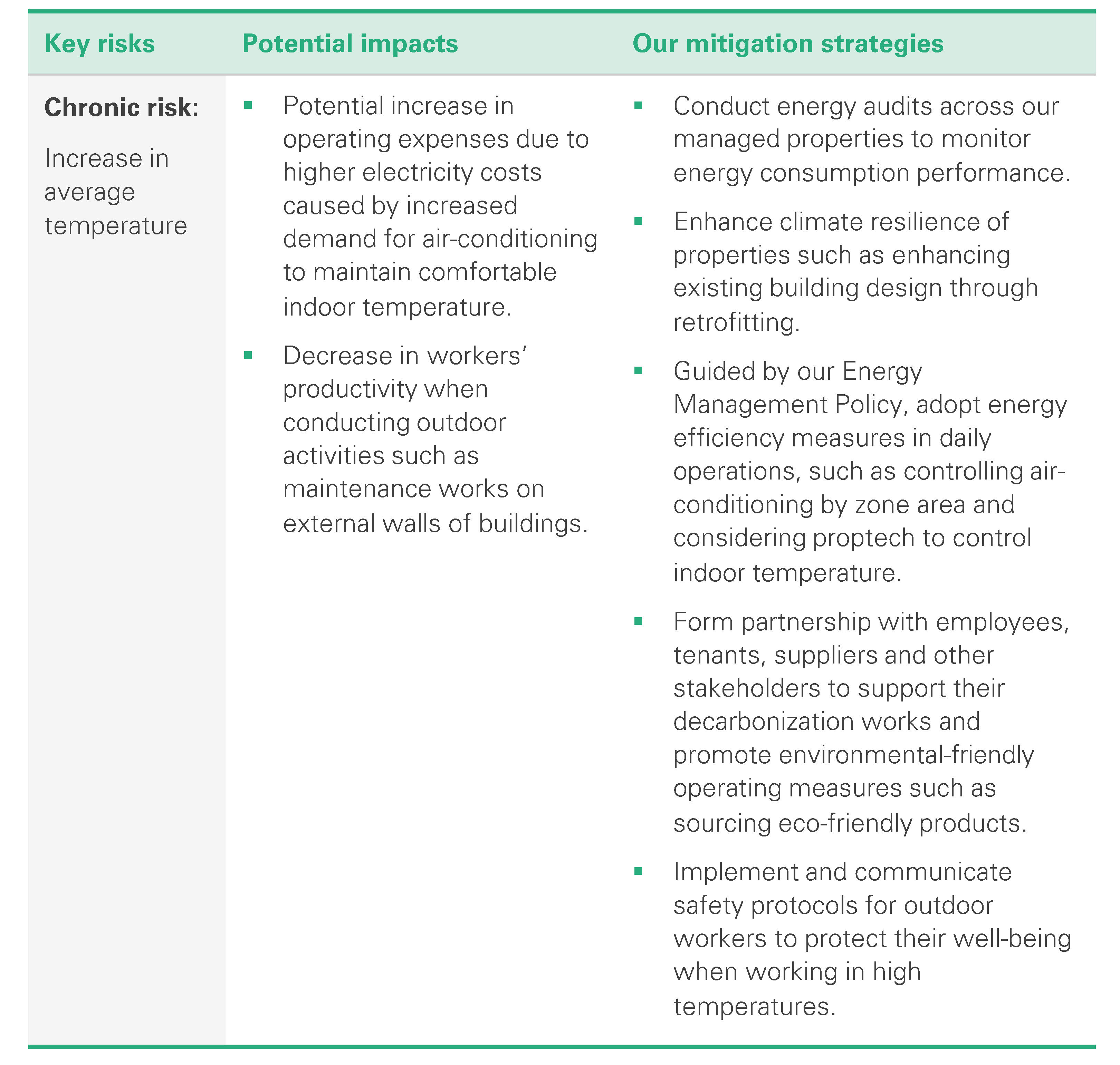
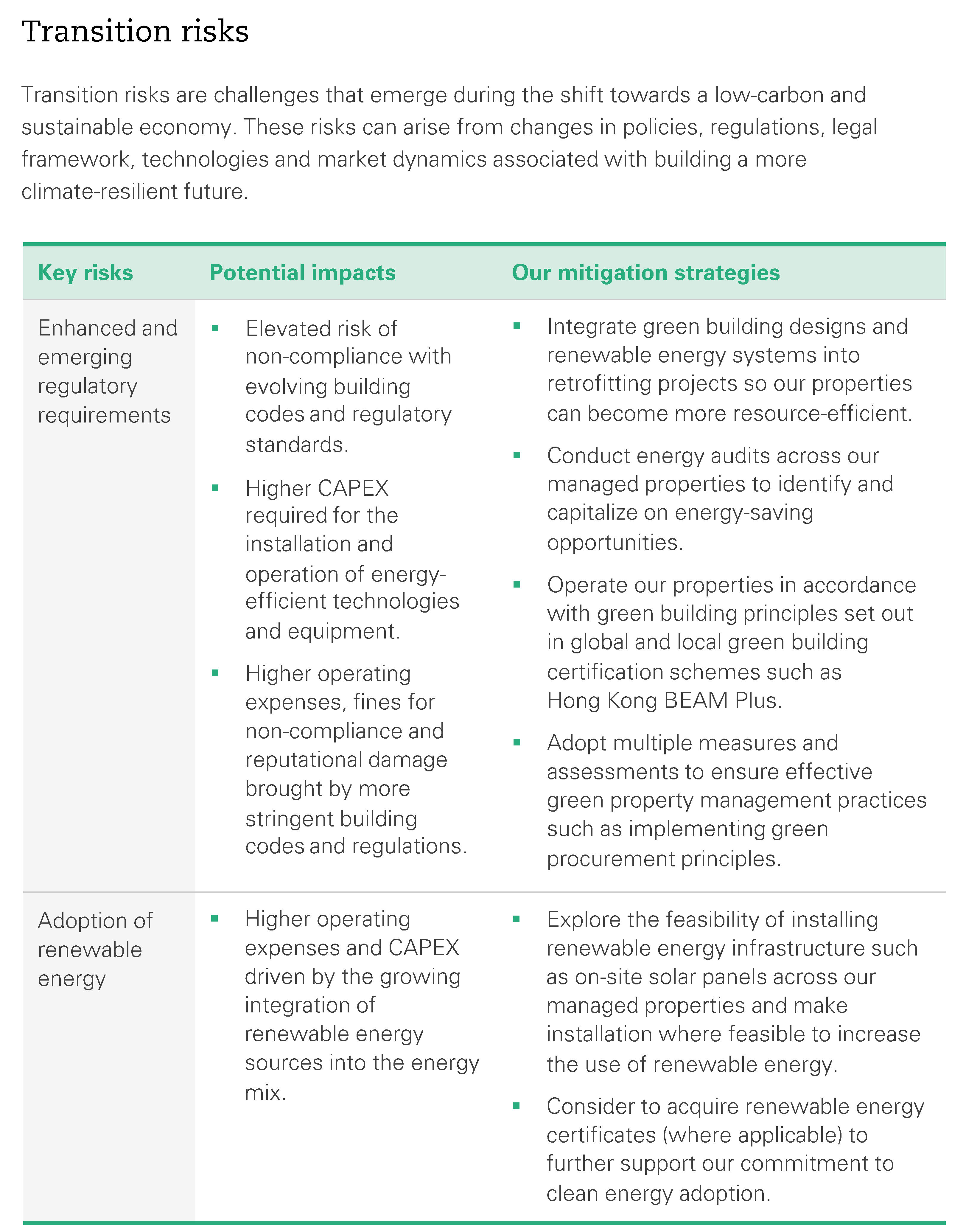
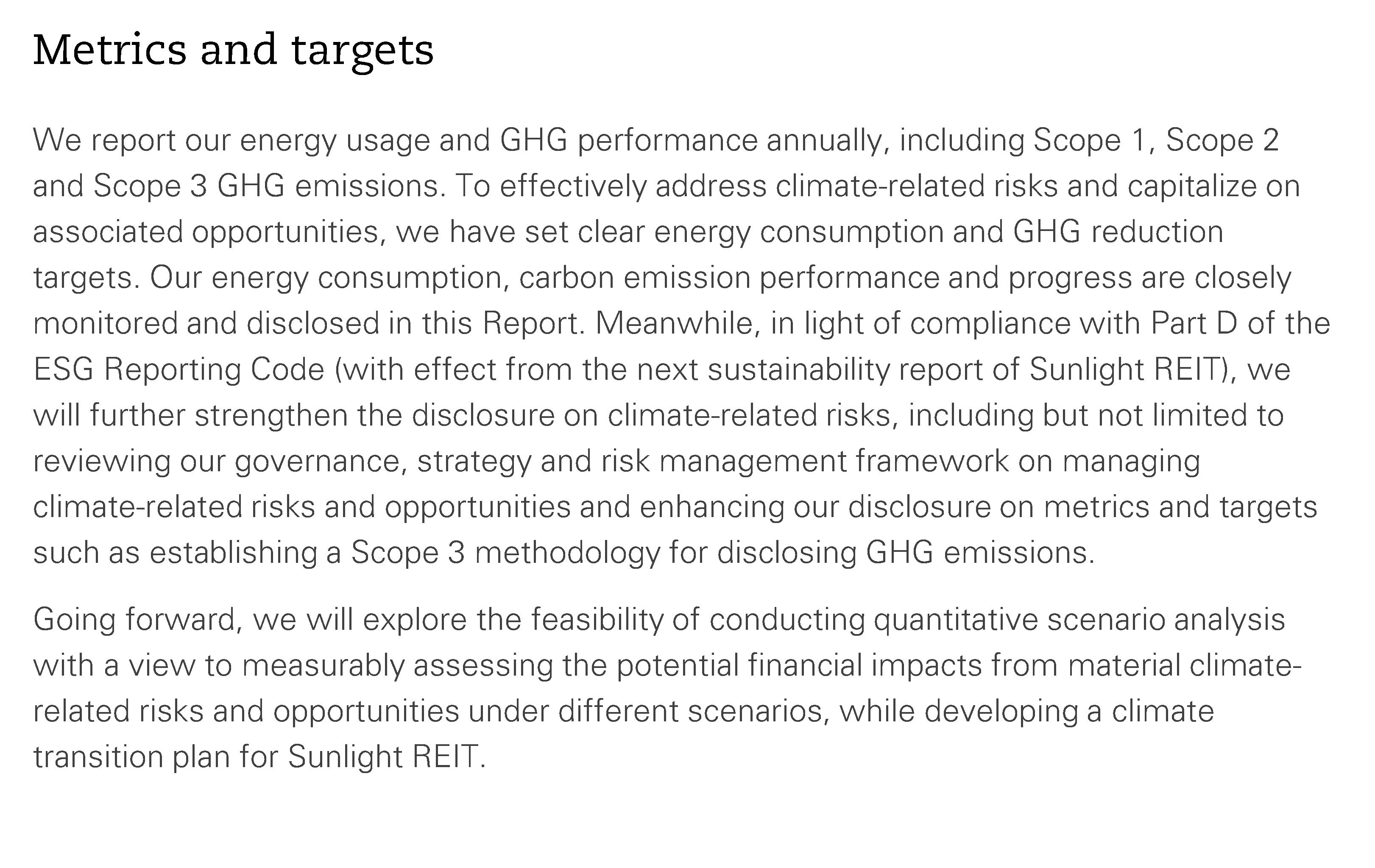
Assessment of Climate-Related Risks
The Manager adopts a blended approach in Sunlight REIT’s risk management framework which effectively harnesses the merits of both top-down and bottom-up approaches in identifying risks.
The ESG Committee monitors sustainability risks (including climate-related risks) and makes recommendations to the Risk Taskforce on a semi-annual basis. Further, pursuant to SFC’s circular in relation to “Management and disclosure of climate-related risks by fund managers” dated 20 August 2021, the Manager is required to assess climate-related risks of Sunlight REIT at least annually. Based on the recommendation from the ESG Committee, the Risk Taskforce considers that climate-related risks are relevant but not material to Sunlight REIT during the Reporting Period.
Please refer to the “Risk Management” section under Corporate Governance of Sunlight REIT’s website.





